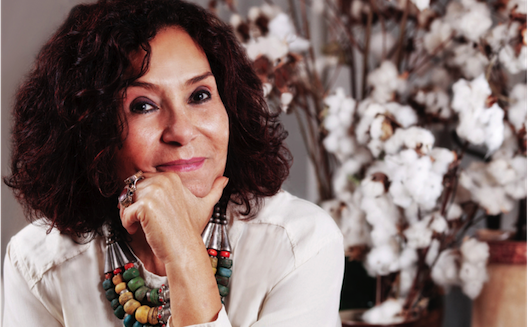What it takes to build a global luxury jewelry brand: Egypt's Azza Fahmy


The tech startup boom and seemingly overnight successes like
Facebook and Instagram have mistakenly led many to believe that
success is somewhat instantaneous. We talk about exit strategies
before we’ve even written our business plans. In reality, building
a global brand takes years, sometimes decades.
Today, Azza Fahmy
Jewellery —the first Egyptian designer jewelry
label—employs over 200 people varying between skilled labor,
designers, engineers and marketers.
The company has also dressed Paris Fashion Week models, as well as
Queen Rania of Jordan, singer Rihanna, and British supermodel Naomi
Campbell, has been featured in a variety of international
publications from Vanity Fair to the New York Times, has
collaborated with international brands such as Preen and Julien
Macdonald, and has been invited to create collections for both the
British and Louvre Museums.
But Fahmy—who in 2007 was named one of the 25 most influential
businesswomen in the Middle East by the Financial Times—is no
overnight success. She founded the company almost 45 years ago in
1969, having stumbled upon a book on medieval European jewelry and
realized that she had found her true calling.
Building a Global Brand
So how did Fahmy’s brand achieve such international acclaim and
coveted status among fine jewelry labels such as Cartier and
Bulgari? In addition to having the passion and commitment to
persevere through struggles, and an unquenchable thirst for
learning, one of Fahmy’s most valuable lessons is brand
authenticity.
“One must work on making the brand's products relevant,” she says
of new market expansions. “The tricky part is to create a balance
between what appeals globally without compromising the brand's
identity.”
Another vital element to transforming a family-owned enterprise
into a competitive global business is re-structuring the
company.
Over the past six years the business has evolved from an
entrepreneur-run company, to one with an established and
strategically structured operations team comprised of marketing,
sales, design, planning and quality control departments, supported
by strong financial and human resource teams.
"As retail expansions unfolded, we materialized in several local
outlets, as well as standalone and distribution outlets in London,
Jordan, Qatar, Bahrain and Dubai. With such rapid expansions, I
realized that internal change was vital to accommodate the growth
in the business,” Fahmy explains.
Now, Fatma Ghaly, Fahmy’s daughter, has taken the helm as Managing
Director and is poised to expand the company’s presence in the
Middle East, Europe, and North America.
A Real Entrepreneur Creates a Legacy
As the first woman to train with masters in the
renowned jewelry quarter in Khan El Khalili, Fahmy gained the
expertise to design the most intricate and poetic jewelry pieces,
standing on her head, metaphorically speaking.
Yet she never forgot her beginnings and the challenges of a
male-dominated industry, and always knew she would give back to the
community and contribute to nurturing upcoming generations to
develop and preserve an industry that has provided her with both a
source of passion and success.
Initiated under a corporate social responsibility (CSR) umbrella in
2011, Fahmy co-founded project Nubre, meaning
“Design” in Nubian, with the European Union (EU), to enhance the
local culture of contemporary jewelry design through workshops.
Evolving Nubre to the next level, Fahmy established
the Azza Fahmy
Design Studio (AFDS) in 2013, a joint venture and
partnership with Alchimia, Contemporary Design School based in
Florence, Italy.
Fahmy’s vision to drive economic growth, job creation, and
enhancement of related industries in the region is also channeled
through the Azza Fahmy
Foundation, which focuses on providing vocational education
through exchange programs and development projects, which feed
creative industries and facilitate knowledge-transfer across the
jewelry-making industry.
Fahmy’s modus operandi is epitomized by her ‘the
sky’s the limit’ attitude that has demanded she continuously
challenges herself to elevate her work—and equally, her societal
contribution.
I ask her what she would have done differently? “Nothing.
Everything happens for a reason,” she says simply.
What strikes me is that, had we measured Azza Fahmy’s success in her first 5 years or even 10 we would not have anticipated that her business potential would flourish.
Naysayers sometimes discredit the region’s recent
entrepreneurship push, saying there are no real success stories in
the Arab world, meaning companies ready for scale, growth, and
investment, or that few have achieved the success of our Western
counterparts, barring a few household names.
I believe we will see the seeds of Arab entrepreneurship
bear fruit in the coming decades—if we give them the chance to
ripen, and start measuring success in lifetimes.


